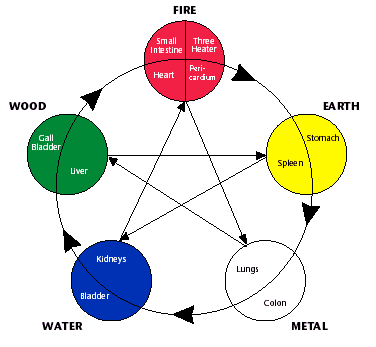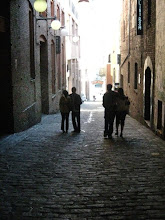For the examination of how religion is evident Christianity based cultures, we should note that Lock points out the resemblances of the Christian’s savior Jesus and our modern attitudes toward health care. For instance she tells of the “rising of Lazarus” (Lock 292) who was a man who was raised from the dead by Jesus. Lock states that this was “the first great event of the Christian triumph over death” (Lock 292).
 This is something I agree with Lock on. It was this first idea that one could defy death by raising someone from the dead. This is reflected by our use of tools such as the “defibrillator”, a device that shocks a non beating heart into reanimation, thus raising one from the dead. In addition to this we should look at the idea that is presented by the idea of communion amongst the catholic faith. This act is meant to symbolize the taking in of the savior through eating his flesh and drinking his blood and being healed of one’s sin. While the act of communion is meant to symbolize one’s oneness with God, it also instills the idea deeper of healing oneself by taking in others. This is why we can see in our culture especially progressive ideas regarding blood and organ donation. Christianity is largely a religion of the flesh accusing the flesh of being our earthly vessel and the spirit being something fragile, and unexplainable. This emphasis on the flesh is really evident in the way we treat, the body in our society trying to preserve it at all costs. Cross culturally speaking as we have seen in past articles such as the discovery of the sexes; all of the Judeo-Christian based societies held a strong emphasis on bodily functions and their relation to diseases. This emphasis on body and it’s relation to illness is shown in the practice of leeching or letting bad blood out of the body.
This is something I agree with Lock on. It was this first idea that one could defy death by raising someone from the dead. This is reflected by our use of tools such as the “defibrillator”, a device that shocks a non beating heart into reanimation, thus raising one from the dead. In addition to this we should look at the idea that is presented by the idea of communion amongst the catholic faith. This act is meant to symbolize the taking in of the savior through eating his flesh and drinking his blood and being healed of one’s sin. While the act of communion is meant to symbolize one’s oneness with God, it also instills the idea deeper of healing oneself by taking in others. This is why we can see in our culture especially progressive ideas regarding blood and organ donation. Christianity is largely a religion of the flesh accusing the flesh of being our earthly vessel and the spirit being something fragile, and unexplainable. This emphasis on the flesh is really evident in the way we treat, the body in our society trying to preserve it at all costs. Cross culturally speaking as we have seen in past articles such as the discovery of the sexes; all of the Judeo-Christian based societies held a strong emphasis on bodily functions and their relation to diseases. This emphasis on body and it’s relation to illness is shown in the practice of leeching or letting bad blood out of the body.The Judeo-Christian view of illness in the body starkly contrasts to the ideas presented by Buddhism and Confucianism that prevailed in the east. In Food Medicine and the Quest for Good Health Chen points out: “These forms of traditional medicine share several distinguishing elements: secularization of medical knowledge from spiritual forms of healing… Diseases, ailments, and plagues were considered to be deeply enmeshed with a person’s social and political milieu. Body and self were intimately tied to environmental elements such as air, water, heat, cold and dampness.”(Chen 19) So we can see that a Chinese style of medicine is based on the balancing of several aspects of environment and one’s nature rather than the body.
 Buddhism emphasis strength and foundation in the spirit, and reincarnation of those spirits meaning, that one will experience the earth multiple times over a lifetime. Therefore, in Buddhist based cultures, this is reflected in their attitudes towards medicine, as people are treated for imbalances in the spirit rather than a bodily malfunction.
Buddhism emphasis strength and foundation in the spirit, and reincarnation of those spirits meaning, that one will experience the earth multiple times over a lifetime. Therefore, in Buddhist based cultures, this is reflected in their attitudes towards medicine, as people are treated for imbalances in the spirit rather than a bodily malfunction.In comparing cultures based in different religions we can see that they differ when comparing the ideas of spirit/ soul. As Lock points out in her piece, we based in the western society have always viewed our spirit or soul as being located in some portion of our body. With notions of emotion and passion based in various organs from the penile glands to the liver. With a western idea of the souls being tied inexplicably to our bodies, there is an explanation for the general acceptance and belief of the phenomenon of “brain dead” individuals. Western ideology places the spirit and consciousness into the brain, as we can see in our unit on selfing. All of the pieces in the selfing united described a situation where in contemporary western medicine that our personalities are merely due to imperfections in our brain’s anatomy. By altering the chemistry of our brains we are then able to alter ourselves. So by this western logic if an individual’s brain is irreversibly altered, they or the aspects of personality we have known them to be have “died”.
However, when examining cultures not based on the western Judeo Christian values, we can see a difference not only in the use of self altering drugs but in the relationship of the soul and body. For example cultures that are based in Buddhism. In these cultures the central idea of Karma, which is the belief in pre ordained paths for one to reach enlightenment over their many lives. Karma creates a society that values ones predetermined role in earthly life and therefore, one’s karma ties one to the body completely. One can never be dead while their body is alive and one has no need to prolong their life, as when death comes their Karma has been fulfilled, and they will return to resume it. Instead we see a greater emphasis in post mortem care. As showcased in “The Tibetan book of the Day” the deceased Buddhists, is prayed for and cared for in the afterlife for 49 days. Similarly in the Japanese culture when a family member dies, the family is expected to notify all close relatives and friends of the death and “mourn the spirit during” o shougatsu (new years). Consequently they are expected to nourish the deceased spirits by placing food offerings periodically through the spirits next life. While this care for spirits could be viewed as excessive, it is merely (like our care of the dying) a product of their cultural values institutionalized by Buddhism.
Work Cited
Nancy Chen. Food Medicine and the Quest for Good Health. 2009
Lock Margaret. Twice Dead.2002. University of California Press.
Laqueur Thomas. Making Sex. 1990 Harvard University Press.
Picture citations
http://www.whatif.cisforcool.com/wp-content/uploads/2007/10/tcm.gif
http://www.btc-bci.com/~jneiman/images/Lazarus.gif




No comments:
Post a Comment